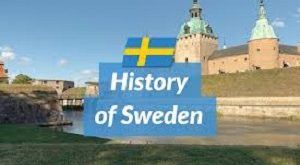The History of Belgium
In the present time when we say Belgium, the primary idea that springs up at the top of the priority list is the Bruges, waffles, Brussels, or fries as the feature of the EU. These are not only the internationally known generalizations; be that as it may, they root from Belgium’s set of experiences and the beginning of its name.
The Origin
It is accepted that Belgium gets its name from the clans of Belgae, which used to live in the northern sides of what was then Gaul around the third century BC. What is Belgae, and where did these clans come from? According to the historical background specialists, the name got its establishments from the proto-Celtic words ‘belg’ and ‘bolg,’ which mean to extend with outrage.
With regards to the conversation over the beginning of Belgium, there have been monstrous discussions and contentions among the specialists, students of history, and researchers on whether Belgaes were really Germanic, Celatic, or a combination of clans. Inquisitively, a couple of sources suggest that Belgaes themselves were similarly unsure to where they should be. Exactly when Julius Caesar overwhelmed their regions, he saw that their language and customs were not equivalent to those of various clans in Gaul. During his triumphs, Caesar drew his thought, particularly on the Belgaes. The purpose for focusing on the Belgaes was that they had an extraordinary component. What’s more, for what reason would they say they were thought of as so impossible to miss? Out of the multitude of clans that existed in Gaul, the Belgaes were portrayed as the boldest and generally trying of all, and this reality was upheld by how they were the hardest to be won. It took him four years until he finally vanquished the Belgae clans in 53 BC. Additionally, during the hours of Romans, Belgaes couldn’t recognize the way that their territory and domains were fundamental for the Realm and revolted. Their boss Ambiorix was liable for a revolt yet was in the end crushed.
After the Roman Period
After the fall of the Roman Domain and the beginning of the Medieval times, the terrains which today frames Belgium ended up becoming a piece of the Heavenly Roman Realm and would remain as such until the 11th and twelfth hundreds of years. The effect and control of the Sacred Roman Realm over these areas would consistently lessen all through the long haul. Subsequently, these grounds were left isolated, and the absence of safety was a nice opportunity for the French and English to get a sense of ownership with the area.
Next Centuries
Throughout the long term, these districts were isolated into minimal middle age or little medieval states. The most eminent ones that emerged were the areas of Hainaut and Flanders, Duchies of Limburg and Brabant, and the Sovereign Parish of Master. Of this large number of primitive or middle age expresses, the most well-to-do was the District of Flanders. The locale transformed into a point of convergence of exchange and trade and where English fleece was imported and changed over into fine texture. The wealth of the region provoked the advancement of metropolitan regions, for instance, Gent, Ypres, and Bruges. Until the nineteenth 100 years, the districts of present-day Belgium were constrained by the Dutch, Spanish, and French and would remain until a progression of occasions that would provoke the formation of the Belgian state.
Start of Belgium
The Vienna congress
The year 1815 was without basic importance with next to no questions. Following the loss of Napoleon in Waterloo, the effective powers of Austria, England, Russia, and Prussia met in Vienna to rearrange influence and orchestrate the locale of the districts for a seriously significant time-frame to come. Maybe, one of the significant choices was the development of the Unified Realm of Netherlands. The main thought was to make a state which would fill in as a cushion district against any future mediation of the French. During the Vienna Congress, the development of a Belgian state was suggested. In any case, this option didn’t get adequate help and reinforcement. Maybe it was presumed that locales that were once significant for France ought to be by and by added to the Unified Realm of Netherlands as its part.
This was not really the best choice as it caused issues that would make a period of tumult and turmoil and what may, eventually, brief the Belgian Upheaval 15 years later. The Unified Realm of Netherlands was isolated for an enormous scope as a result of the way that the people in the north were essentially Protestant, while individuals in the south were Catholic. Further, there was moreover a phonetic division or the etymological division between the Walloons, whose language is French, instead of the Flemish, whose essential language is Dutch. In the years to come, this etymological division will be one of the vital clarifications behind the confusion in the southern domains.
The Dutch ruler Willem I upheld the Protestants, and along these lines, he got disdained in the south. Likewise, people in the south of the Realm were acknowledged to be less tended to or addressed. Willem even endeavored to make Dutch the boundless widespread language. Notwithstanding, he stood up to a serious reaction from the networks that were French-talking. The solicitation which was set up by the Dutch prevalence was clearly prohibited for the southern networks, and this prompted the beginning of the insurgency of Belgian.
The Revolution
On the 25th of August 1830, the Dutch ruler Willem I was adulating the fifteenth year of his standard. As a festival, he went to the Auber’s show La Muette de Portici at the Brussels drama house. During the exhibition, there were various devoted flags inside the drama that were required an upheaval. From when the subsequent demonstration began with the two part harmony called ‘Love sacré de la Patrie,’ an uprising began among the crowd, and the revolt quickly moved to the streets of Brussels. The motivation and strengthening for the upset began to get pace in various metropolitan networks, and people’s requests were essential and basic. They needed opportunity and to stop the control of the Dutch. The Belgian Upset was an occasion which not only vital for Belgium. Notwithstanding, it in like manner framed the excess piece of Europe and achieved another country.
Belgium Into Existence
Yet again following these occasions, the powers from the Vienna Congress assembled in London on the twentieth of December’1830. This time they had no choice or decision but to see the outcome of the upheaval of Belgian and to guarantee its freedom. The specialists, in any case, requested that the future ruler ought to come from the line of Saxe-Coburg. The purpose for this was straightforward that was to avoid any French interests and stay away from it for later on Belgian regions. That is the explanation Leopold I of Saxe-Coburg was invited to turn into the Lord of Belgium, and the date of his introduction, i.e., was 21st of July’1831, transformed into the public day of Belgium. Starting there onwards, the Dutch and French people group have their own nations controlled by various rulers and fixed the year 1831 as the day when Belgium appeared.
Results
Belgium has a seriously questionable history with various critical occasions that have major areas of strength for an and impact over its set of experiences. In present times Belgium is known as the place where there is marches, live concerts, best waffles, the world’s best chocolates, and the country that presented french fries.


